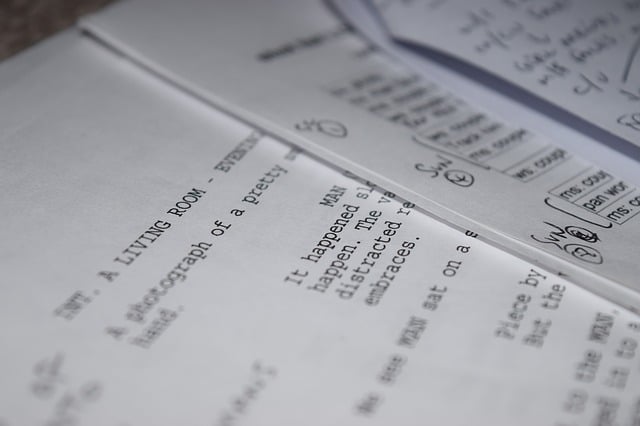
A script can be a text that indicates how a theatrical or cinematographic work should be developed.
There are several meanings of the concept of script . It may be a writing that points out certain ideas that serve as a guide for a certain purpose.
The script, in this case, stands out for being concise and for presenting the information according to a certain order that facilitates its understanding. For example: “If you don't know how to use the software , you can look for the script that the IT guy prepared,” “Here's the script: use it when you don't know what to do,” “I don't understand the script that the IT guy left me.” manager before leaving on vacation.”
Symbolic use and spelling
The script can also be symbolic , like an indication given by someone to carry out a task: “Do not deviate from the script: you have to call Dr. Jouso, explain to him why we canceled the meeting and make sure that he does not give up signing the contract.” , “He is a player who strictly respects his coach's script, which is why he enjoys many minutes of play” , “If you deviate from the script again, you will no longer have a place on this team” .
For spelling , the hyphen is a sign that is written at the end of a line that ends with part of a word that does not fit in it or that is used to join the two parts of a compound word.

Generally, theater actors respect the instructions of the script.
The script in film, TV, radio and theater
In the field of cinema , television , radio and theater , the script is the text that sets out all the details and content necessary for a work or broadcast to be carried out.
Take the case of a movie : the script will indicate where each scene takes place, the dialogues between the characters, the body attitude of each one, etc.
Tips for its creation
In 2013, an artist in charge of creating storyboards for Pixar named Emma Coats published a series of tips for creating a good script. Given the popularity of the North American company and the variety and depth of its works, it is advisable to take Coats' words into account. Let's see their advice below:
* learn to love your characters and admire them more for their perseverance than for their successes;
* Do not leave aside your own interests as a spectator. It is important to create something that you also like to read, and this does not always have to coincide with what you like to write;
* do not force the theme of the story, but it should appear only as it is written;
* don't ignore the basic structure unless it's really necessary. In other words, if the script calls for "introduction, middle and end," then it should be done that way;
* try to put all ideas on paper, instead of leaving them in our minds;
* seek simplicity, without fear that this will have a negative impact on the quality of the work ;
* pose challenges to the main character, take him to places and situations that make him uncomfortable so that he can bring out the best in himself;
* discover the end of the story before entering fully into the development;
* daring to finish the script even if we don't think it lives up to our initial expectations, thinking that the next one will be better;
* discard all initial ideas, seeking to surprise ourselves in the search;
* create characters who have their own voice, who give their opinions, who are committed, since only in this way can we offer the audience something interesting and enriching;
* ask yourself if the script makes sense, if it should be written, if it is worth writing.
* If we reach a point from which we cannot leave, make a list of the events that will not take place in the future of the story, to clear the mind of useless ideas .
